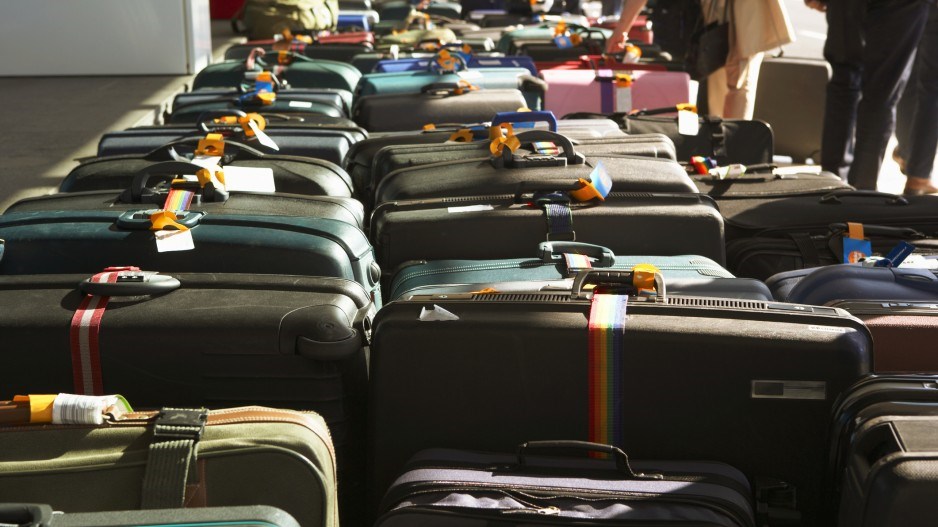B.C.’s housing minister is reiterating calls for Ottawa to match federal funding to rising immigration levels as the province grapples with a growing population fuelled by new international residents.
Ravi Kahlon said the federal government needs “better alignment” between immigration growth and financial support to grow the services required to support those people.
“I was the first housing minister in the country, in January when I got appointed, to make the case to the federal government that we needed to align our immigration and temporary resident numbers to housing starts and affordable housing,” said Kahlon.
“Because this is the challenge that we have when that does not happen.”
Kahlon pointed to new Statistics Canada numbers Tuesday that show B.C.’s population has grown almost 2.1 per cent so far this year, adding 114,481 new people (up to October). That includes 62,114 new people between July and October — the largest quarterly population increase in provincial history.
The source of the increase is almost entirely immigration from other countries — a trend mirrored nationally with 96 per cent of the rising population tied to immigration.
Without that, B.C.’s population would have come close to decreasing in the last quarter, with the birth-to-death rate flat and interprovincial migration at a negative as British Columbians leave for other provinces like Alberta.
Some of the immigration the province had planned for and needs to fill vacant jobs to keep the economy running.
Ottawa had reached 80 per cent of its immigration target of 465,000 people this year by September.
Whether immigration levels should be curbed slightly to help lessen the demand for housing is a matter of national debate.
“The numbers are significant,” Kahlon said.
“I think the challenge and the opportunity for us is that we think the immigration targets that are set are reasonable — we don't have an issue with the immigration numbers.
“The challenge we have is with temporary resident numbers. We went from 31,000 to 117,000 over one year, and that is hard to plan for when it comes to infrastructure, health care, schools and housing. And that's where I think we need to do a better job across the country.”
Most of the temporary residents are students in Canada on temporary visas (though some are also refugees).
They increased 312,758 from July to October, the largest quarterly increase on record, according to Statistics Canada. More than 54,298 were in B.C., the most in any quarter in the province’s history.
Kahlon said annual temporary resident numbers have quadrupled in the past two years, from 31,000 to 117,000.
“We have a problem,” he said.
“Broadly speaking, the federal government has a problem because the immigration system now supports international students to become citizens. Which is a good thing. … But if your temporary resident numbers are so much higher than what your immigration targets are, what happens when all these young people [students] who come here with the hope of wanting to be a Canadian citizen one day find out that there isn't opportunities for them to have that.
“It's going to lead to major issues. I've seen the federal government in the last few weeks make some good decisions around recalibrating the temporary resident numbers. But more is going to be needed to be done.”
CIBC released a report recently that said Statistics Canada is likely underestimating the number of temporary immigrants by as much as one million.
The skyrocketing immigration is a major strain on B.C. services, like schools and healthcare. The Ministry of Health says unprecedented population growth comes as the province’s population of seniors will outnumber youth by 2025. Seniors’ health-care costs are on average triple that of a middle-aged person.
The biggest impact, though, is on housing. All of Premier David Eby’s recent reforms to speed up housing approvals and density are projected to build as many as 300,000 new units (on top of existing supply) within 10 years.
But federal estimates are that the province needs at least twice that much to keep up with population growth and make a dint in housing affordability.
Kahlon said the unexpectedly large immigration numbers are one of the reasons B.C. passed legislation to require municipalities to recalculate their housing needs.
“We were waiting for these stats to come out so that their housing needs reports would be the most accurate and most reflective of what the actual need is,” he said.
“Many communities planned their housing needs from 2018 numbers. And it shows you how far off we are if 2018 data was being used to plan housing. That's why the 2021 numbers were so important, that’s why we are asking communities to start in January, because we wanted them to have the latest data available to them.”
The numbers, though, paint a daunting task for the province’s future — a skyrocketing population that needs services, schools, hospitals and houses. B.C. is already struggling to keep up.
The province is hoping Ottawa steps up to the plate to either reduce temporary residents, or boost funding, to keep British Columbia from falling even further behind.
Rob Shaw has spent more than 15 years covering B.C. politics, now reporting for CHEK News and writing for Glacier Media. He is the co-author of the national bestselling book A Matter of Confidence, host of the weekly podcast Political Capital, and a regular guest on CBC Radio. [email protected]



